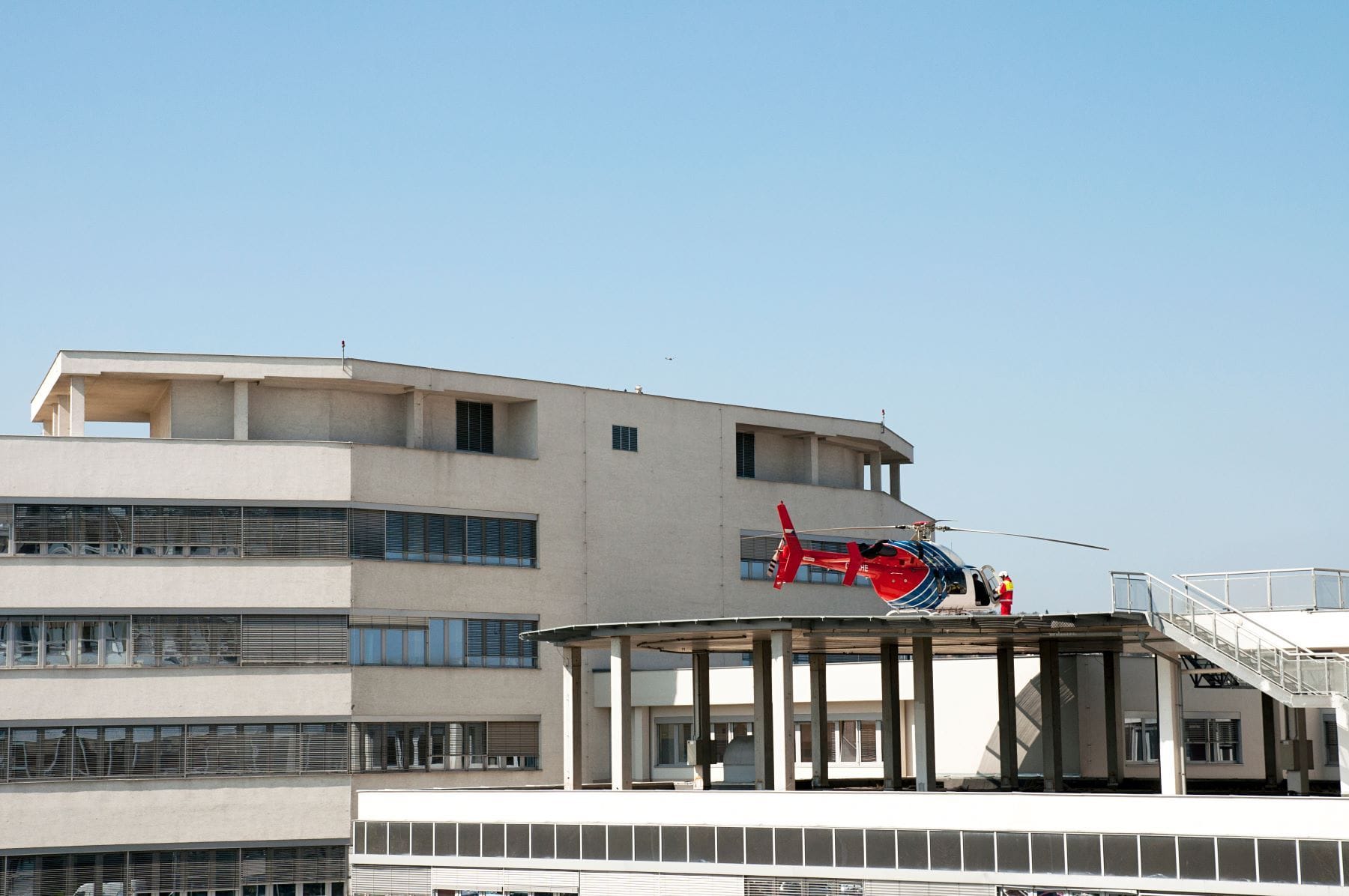$45M Verdict Against Orlando Health Over Fatal Heart Attack Transfer Delay
A hospital’s fatal delay in care sparks a $45M verdict, challenging network-driven policies and prompting calls to reform Florida malpractice law.
Updated on
On July 26, 2020, James Sada suffered a STEMI—a severe type of heart attack caused by a fully blocked coronary artery that requires immediate intervention. Emergency responders alerted South Seminole Hospital (SSH), part of the Orlando Health system, that a STEMI patient was en route. Despite knowing that SSH lacked a cardiac catheterization lab necessary to treat such a condition, hospital staff admitted Sada and prepared to transfer him to Orlando Regional Medical Center (ORMC), another Orlando Health facility.
Although a competing hospital with appropriate facilities was located just under four miles away, Orlando Health opted to move Sada via helicopter to ORMC. The helicopter did not depart SSH until 9:02 a.m., nearly 90 minutes after Sada arrived and after a 23-minute delay to burn off excess fuel due to weight concerns. Sada ultimately died at 9:54 a.m. in the catheterization lab at ORMC, having never received the life-saving intervention he needed.
The Allegations
The Sada family filed suit against Orlando Health, claiming the system’s internal policy delayed critical care by prioritizing network retention over patient outcomes. At trial, the family's attorneys argued that SSH should have advised first responders to bypass the facility entirely, directing them instead to the nearby hospital equipped to perform emergency catheterization.
Stuart Ratzan, counsel for the Sada family, asserted that the healthcare system had developed a business model designed to retain heart attack patients within its network, regardless of medical urgency. "This isn't just a hospital or a doctor having a bad day," Ratzan told Law360. "They developed a system to attract and keep heart attack patients within their network."
Orlando Health defended its actions by invoking Florida’s Good Samaritan Act, which shields healthcare providers from civil damages unless their conduct demonstrates reckless disregard. The hospital system maintained that Sada was medically unstable throughout his time in their care and that its staff acted according to accepted medical standards.
The Trial
The Orange County jury found that Orlando Health had acted with reckless disregard for Sada’s life. While the jury did not find the hospital system negligent under a traditional malpractice framework, they concluded that the conduct rose to the level of reckless indifference. The verdict awarded $45 million in damages—$15 million each to Sada’s widow, Donna Sada, and two of his six children, who were under the age of 25 at the time of his death.
The legal team representing the Sada family included Stuart N. Ratzan, Sean M. Cleary, Mario R. Giommoni, and Kimberly L. Boldt of Ratzan Weissman & Boldt. Orlando Health was represented by Richard B. Mangan Jr., Karissa L. Owens, and Matthew A. Hicks of Rissman Barrett Hurt Donahue McLain & Mangan PA.
The Limits of Current Florida Law
Florida’s current wrongful death statute restricts pain and suffering damages in medical malpractice cases, excluding adult children over 25 from recovering for the loss of a parent. This law limited the Sada family’s recovery to just three eligible survivors—his widow and two younger children. "It would've vanished in the vapor," Ratzan explained, referencing how the case could not have proceeded if the surviving family members had all been over 25. “No one would ever have known it happened.”
However, proposed legislation could soon change this. Bills currently moving through the Florida Legislature—H.B. 6017 and S.B. 734—seek to repeal the age restriction on wrongful death claims in medical malpractice suits. These bills have received widespread bipartisan support and, if passed, could expand access to justice for many families previously barred from seeking non-economic damages.
What’s Next?
Although Orlando Health has yet to comment publicly on the verdict, the $45 million judgment underscores a broader conversation around hospital network policies and patient access to time-sensitive care. With legislative reforms on the horizon and mounting scrutiny over intra-network patient transfers, healthcare providers may face increased pressure to prioritize patient outcomes over institutional loyalty.
The outcome in the Sada case also signals a potential shift in how Florida juries interpret "reckless disregard" under the Good Samaritan Act. By distinguishing between recklessness and ordinary negligence, the verdict may pave the way for other high-stakes claims against hospitals that delay treatment for business or logistical reasons. As legal and legislative developments continue, the Sada case will likely remain a critical touchstone in Florida’s evolving medical malpractice landscape.
Frequently Asked Questions
What are the consequences of delayed heart attack treatment in hospitals?
Delayed heart attack treatment can lead to severe complications, including permanent heart damage or death, as timely intervention is critical for survival and recovery.
How does Florida's Good Samaritan Act protect healthcare providers?
Florida's Good Samaritan Act protects healthcare providers from civil damages unless their conduct demonstrates reckless disregard for patient safety, allowing them to provide emergency care without fear of legal repercussions under normal circumstances.
What are the recent changes in Florida's wrongful death statute?
Bills currently moving through the Florida Legislature seek to repeal the age restriction on wrongful death claims in medical malpractice suits, which currently limits recovery for pain and suffering damages to adult children under 25.


